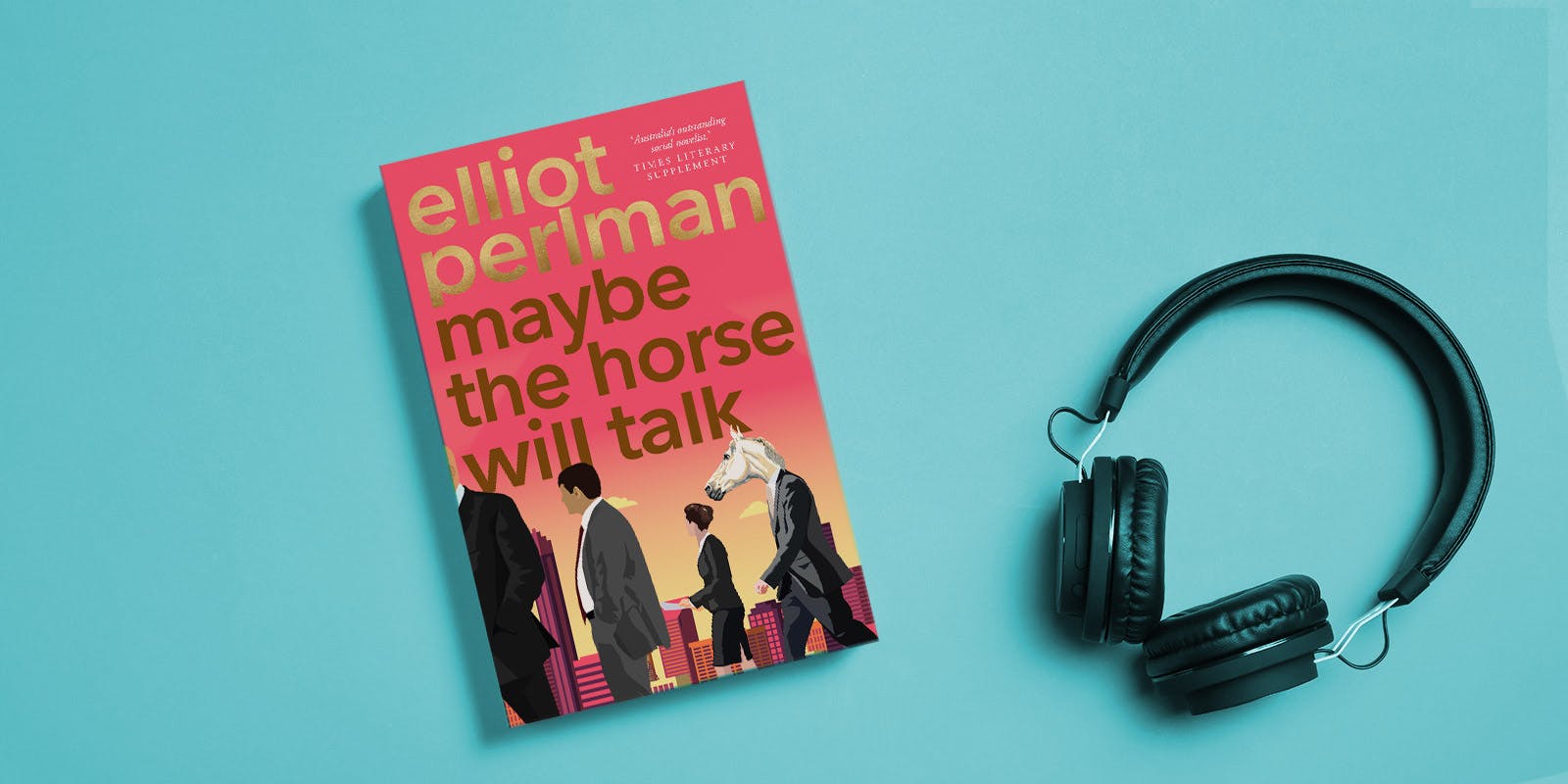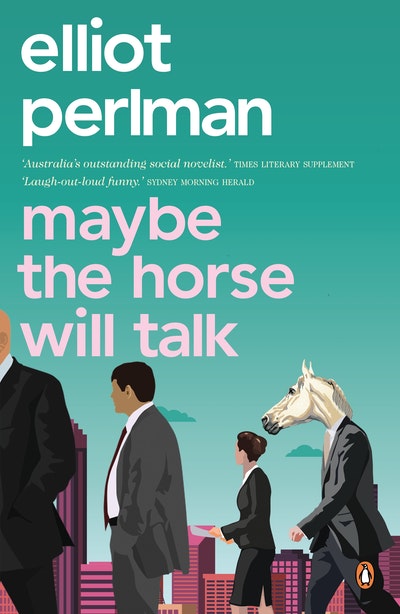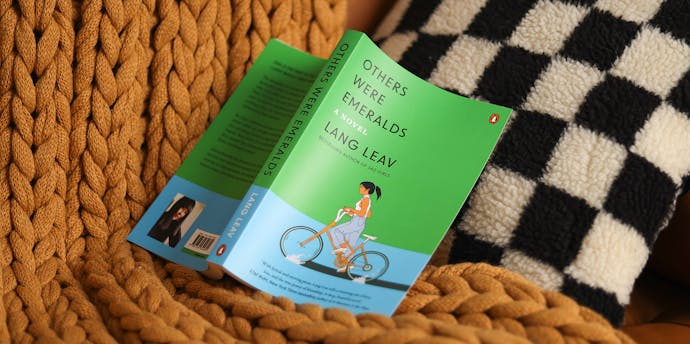The Maybe the Horse Will Talk author reflects on the socio-political conflicts at the heart of the novel.
Please tell us about the inception of Maybe the Horse Will Talk? Where did it all begin?
I had grown up hearing, from my father, I think, a version of the children’s story that I have Maserov tell his son towards the end of Part One, the story that ends with what became the title of the novel, ‘Maybe the Horse Will Talk’. The children’s story comes from the Sufi philosopher and humourist, Nasreddin, who lived, as Maserov tells his son, Beanie, in the 13th century in what is now Turkey. Nasreddin’s stories usually come with thought-provoking messages wrapped in humour. This kind of storytelling has always appealed to me and I try to invoke a version of it in my children’s stories, The Adventures of Catvinkle and its sequel that I’m writing at the moment.
In the case of Maybe the Horse Will Talk, already by at least 2012, I had hit upon an idea that really appealed to me. It was the idea of telling a story (for adults) in which the precariousness of so many people’s employment situations, the concomitant stress of that precariousness and how that seeps under the front door into people homes and relationships, taking the form of a whole panoply of symptoms of chronic stress in a world where nobody is safe anymore and, as the character Betga explains to Maserov, where ‘buying time is the new safe’; to tell a story like this and to try to make it funny. It seemed to me such a common experience and that the children’s story of Nasreddin’s court jester was entirely applicable to this situation. It was time to put a version of Nasreddin’s threatened, stressed-out, much put-upon court jester in a 21st century white-collar sweat-shop environment, trying to make budget and expected to be contactable 24/7 with a corporate psychopath boss for a king.
In a creative sense, how did you come to know your protagonist Stephen Maserov?
Stephen Maserov came easily to me. He’s anyone who’s ever found themselves in a nightmarish workplace, alternately ignored or else terrorised by a psychopathic boss in a toxic, secretive, highly competitive, casually racist and hugely sexist environment, yet who finds themselves unable to leave for fear of unemployment and what it’s going to do to the rest of the other already atrophying parts of their life.
I think there’s dignity to be mined in the experience of a decent person treated incredibly unfairly, where the unfairness is ignored by everyone around him. This was the starting point. We, the readers, just by reading about that person, begin the process of restoring his or her dignity. We identify with or barrack for that person. Their moral, personal, romantic and economic hurdles become ours while we inhabit the pages of their story and for as long as the story stays with us. I know so many people who have elements of Maserov’s life within theirs.
Then we see other people in the story who have, in one way or another, been treated unfairly and we have to see if he, Maserov, can save himself without hurting any other innocent people. He has one hurdle or obstacle after another to overcome and we watch to see if he can overcome them without losing his integrity even though all those with power around him are not apparently burdened by the need to behave morally, to behave with integrity. By trying to survive in the contemporary world with his family, his house and a source of income secure enough to allow him to breathe, Maserov is us.
You paint the legal profession in a less than flattering light. As a lawyer yourself, what do you think your peers will make of your rendition?
I chose to tell the story through the prism of a certain kind of legal practice, namely the mega corporate commercial city law firm, because I had familiarity with that world but the idea of people suffering work-family conflict, that situation where an individual experiences incompatible demands between work and family roles, that’s, sadly, a situation common to many more people than just lawyers. It’s almost everywhere. This, and its effect on our personal lives, was really what I wanted to explore.
Maserov is a lawyer and I hope the reader comes away with tremendous respect for him and even a little admiration for Betga, who is also a lawyer. But, yes, it’s unlikely that the mega city commercial firms will use the novel as a promotional tool. Law schools, though, might want to consider recommending it to potential graduates as they try to decide what they do with their lives.
There are so many admirable lawyers doing very important work. But I chose to shine a light on some of the others. Look, I hope as many lawyers as possible, as many people as possible (and I’m not suggesting here that lawyers aren’t people), get some comfort from the book. It’s therapeutic to be able to laugh at a situation that oppresses you. I know that when I was a young lawyer I would have been grateful to have had a novel like this to read. Ultimately, people want their situation, their difficulties acknowledged and, as a writer, I’m always hoping to make people feel understood, less alone. Sometimes you can do this through humour. This is what I’ve tried to do.
There is plenty of fabulous clipped dialogue among friends, business associates, and between Maserov and his wife. Do you have a favourite line of dialogue from the book (and, if so, why)?
At the time of this interview the book hasn’t come out yet, but those people who’ve read the uncorrected proof copies tell me and tell my editor that they’ve enjoyed the relationship between Maserov and Eleanor and enjoyed pretty much everything the character Betga says. This is immensely gratifying. Betga was a lot of fun to write. My sister said that everyone should have a Betga in their lives.
I also really enjoyed anything with Emery and Fleur Werd-Gelding. When I was proofing the book, and then again when I was reading it for the audiobook recording, I was always pleased to come across them again. I wished there could have been more time spent with them. And of course, Jessica is the real hero or heroine of the story. I’m very fond of her too. Many of her lines are among my favourites.
Your opening sentence sets the tone for what’s to come: ‘I am absolutely terrified of losing a job I absolutely hate.’ At what point of the writing process did you create this opener?
The line was in the first draft but not originally as the very first line. Initially, I think, it was something Maserov said to Betga. But after a while I realised that this was a very succinct way of very accurately telling the reader Maserov’s predicament and state of mind right at the outset. And since, it seems to me, it’s a state of mind that’s, unfortunately, so common to so many people, I thought it should be the opening line so that immediately you start reading, you’re there. And it’s something of a paradox. You think, ‘If you hate the job so much why are you so afraid to lose it?’ And yet everyone understands this situation immediately. Many people understand it not just intellectually, they understand it emotionally too. So it was like saying, ‘Hi, welcome to my story. I’m Stephen Maserov and I’m you.’
Given some of the heavier themes of the book – sexual harassment in the workplace, corporate corruption, the increasingly precarious nature of employment – the book could have been presented in a more sombre tone. But the story, and especially the internal anguish of Maserov, is at times hilarious. Was the humour inherent in the writing from the start? Or was it more of a conscious decision to approach serious current social issues from a lighter perspective?
The answer is really, both. The more you write and the longer you’ve been writing the more you learn about yourself. You look back on your body of work and you can see your concerns laid out on the mosaic floor behind you, each tile lying there, some large novels, some short stories, all of them calling out, ‘Remember us?’ That’s your career talking to you.
And when I look at it, it would seem I keep marrying the personal with the socio-political in my writing. So, like many people, but not everyone, I’m aware of these things: the precariousness of employment, the constant anxiety of much of the population, depression, sleep difficulties, constant exhaustion, racing thoughts, feelings of helplessness, diminished libido, appetite disturbances and frequent infections – all of which are symptoms of the chronic stress of much of the population – work-family conflict, endemic sexism, casual racism, sometimes not-so casual racism, sexual harassment in the workplace, sometimes extreme sexual harassment, widespread corporate corruption, a legitimate ever-increasing crisis of confidence in nearly all our major institutions and the gradual but undeniable shifting of risk away from government and big business onto individuals. It’s not sounding inherently humorous yet, is it?
But by pitting Maserov against much of this, from the very first sentence, trying to get the reader to identify with, to root or barrack for him, you’ve got the perfect narrative vehicle to slay the dragon. If we can laugh at the dragon, if we can laugh at the situation that tyrannises us, we can start to be less afraid of it. And if we’re less afraid of it we can start to analyse our situation without panic. Then there is the possibility of a way out.
And from a personal point of view, my dear friend, editor and publisher of 25 years or so, Nikki Christer, had told me that I had always made her laugh. She suggested years ago that I write something funny. And the juxtaposition of the characters of Maserov and Betga struck me as inherently funny. One of them is very concerned to do the right thing by staying within the rules while the other is very concerned to achieve the right thing by playing around with the rules. They are formally adversaries but professionally and then personally they become allies and even friends.
Then, I suppose, there was simply the feeling that people really need to laugh in times like these. I know I’ve needed to. I hope this helps other people to feel better... even slightly.













